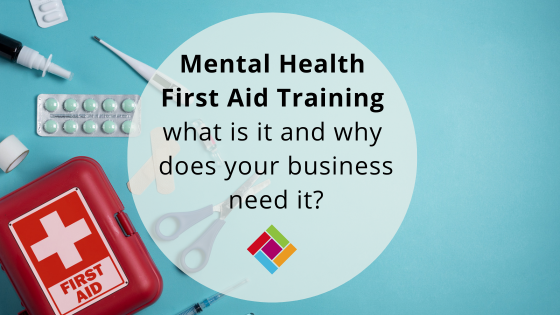
Have you ever noticed a colleague struggling at work and felt unsure how you could help?
While many of us recognise the importance of mental health in the workplace, we also know that many businesses fall short when creating a supportive environment. At some point, we may all be affected by mental health challenges (whether that is directly or through someone we know). Mental Health UK’s Burnout Report revealed that 91% of adults in the UK experienced high or extreme levels of pressure or stress in a year, with one in five needing to take time off due to poor mental health. What’s more, nearly half of workers (49%) said their employer doesn’t have a plan to spot the signs of chronic stress and prevent burnout in the workplace. To compound this, a new survey from workplace expert Acas has found that around 9 in 10 employees (89%) think it is important for bosses to prioritise staff mental health at work.
So how can you help a teammate in need? I recently completed Mental Health First Aid training to become a Mental Health First Aider (MHFAider). Could this be the missing piece in your workplace wellbeing strategy?
What is Mental Health First Aid training?
Mental Health First Aid is recognised as a training standard by the Department of Health, for improving awareness, education and proactive support to those who are showing signs of mental health challenges.
The training equips your team with the skills to recognise, respond to and support colleagues who may be struggling. When paired with a broader workplace wellness strategy the impact can be transformative. The emphasis is on creating a culture where employees feel safe to speak up, knowing that they will be supported and directed toward the right resources. We know that early intervention often leads to a faster recovery.
It gives MHFAiders:
- A deeper understanding of mental health and its impact.
- Skills to identify the early signs of mental health challenges.
- Tools to guide individuals towards appropriate resources.
- Enhanced listening skills that promote empathy and understanding.
Impact on the business
Employees’ mental health has a big impact on productivity. The connection between mental health and workplace performance has been well documented. Investing in the mental well-being of your staff is often seen as an optional expense, whereas it is actually an essential component of success.
The stark reality for managers is that prevention is always more effective and cost-effective than dealing with the fallout of untreated mental health issues. Businesses prioritising mental well-being often see improved morale, higher retention and increased productivity rates.
This is where leaders play a pivotal role. If senior figures in the organisation openly discuss mental health, and champion initiatives to support it – they set the tone for the rest of the team. A culture that prioritises work-life balance and meaningful work is not only good for employees, but also for business.
So, if you do need to support a member of staff, where do you begin?
-
Start by listening
It sounds simple, and it is. Just listen. Active listening, without judgement or interruption, can be a game changer. It can create a safe space for someone to share their struggles and feel understood. The goal here is not to fix their problems but to encourage them to talk openly about their concerns.
In these instances, it can be good to share personal experiences to help break down the stigma. When managers or leaders are open about their own challenges, it signals to others that the workplace is a safe environment for these conversations.
-
Learn to spot the signs
One of the biggest challenges of managing mental health in the workplace is spotting the signs of someone struggling. When performance starts to slip, the instinct for many managers is to jump straight into disciplinary action. However, this approach often overlooks deeper, underlying issues. Mental health issues can manifest as reduced engagement, missed deadlines or changes in behaviour.
Managers who are equipped with the right training can approach these situations with empathy and understanding, rather than defaulting to traditional performance management techniques.
-
Invest in training
Investing in mental health first aid training is a proactive step towards building a healthier and more supportive workplace. By empowering managers to recognise and respond to mental health challenges, you are not just investing in your employees, but the future of the business.
You can find out more about becoming a Mental Health First Aider here, or get in touch and we can tell you how we can support your team.